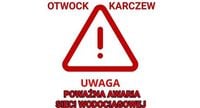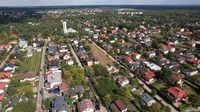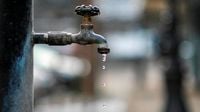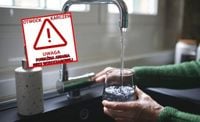Residents of Otwock and Karczew are facing a serious public health alert as the local government has prohibited the use of tap water due to significant contamination issues. On April 2, 2025, at approximately 6 AM, Otwock's president, Jarosław Margielski, announced that the water supplied by OPWiK (Otwockie Przedsiębiorstwo Wodociągów i Kanalizacji) is unfit for consumption or drinking, even after boiling. This dire situation arises from a substantial failure in the water supply network, which has left many households without reliable access to clean water.
The failure is linked to a malfunction at the Water Treatment Plant, specifically affecting the raw water pipeline and the filtration system. Margielski described the incident as "very serious," indicating that the disruption could last several days. As of now, residents are advised to refrain from using tap water for any food or sanitary purposes until further notice.
In a statement shared on social media, Margielski emphasized, "Please do not use water from the OPWiK water supply in Otwock and Karczew. Due to the failure, the water is not suitable for consumption, even after boiling." The ban on water usage is expected to remain in effect until the situation is resolved.
The municipal crisis management team was convened shortly after the announcement to address the ongoing issues and coordinate the response. Residents received an SMS alert from the RCB (Government Centre for Security) warning them about the contamination: "Attention! Water is not suitable for consumption and sanitary purposes in Otwock and Karczew. The commune will provide bottled water and water from a water truck."
As repair work is underway, OPWiK has acknowledged that the water may contain sediment and could exhibit low pressure in various draw-off points. This has led to reports of complete water outages in several neighborhoods, with residents expressing their frustrations online. Reports indicate that streets such as Narutowicza, Żeromskiego, and Tatrzańska are particularly affected, with some residents commenting on the "tragic water pressure" and even instances of "dirty water" being dispensed from taps.
One concerned resident voiced their frustration, stating, "It’s nice that you’re reporting this at 11 PM when stores are closed, making it impossible to buy water for the morning." This sentiment reflects a broader discontent regarding the timing and clarity of the communications from OPWiK regarding the water quality issues.
In response to the crisis, OPWiK has committed to keeping the public informed about the progress of the repairs and the status of the water supply. The company is actively working on cleaning the filter bed and has predicted that the current stage of repairs will last until approximately 6 AM on April 3, 2025. Once water supply is restored, officials have cautioned that it will still not be safe for consumption or sanitation.
As a precautionary measure, residents are urged to stock up on bottled water for drinking and cooking. The local government is preparing distribution points for bottled water to assist those affected by the outage. Margielski reassured the community, stating, "We are working tirelessly to restore the appropriate water quality and will keep you updated on any changes."
In this difficult time, the Otwock community is being encouraged to share information and support one another. OPWiK has requested that residents refrain from using water-dependent appliances, such as dishwashers and washing machines, until the situation is resolved to prevent further complications.
The ongoing water crisis highlights the vulnerability of urban water supply systems and the critical importance of timely communication during emergencies. As the situation develops, both local officials and residents are hopeful for a swift resolution to restore safe water access.
For now, the focus remains on ensuring public health and safety as Otwock navigates through this challenging period. Residents are reminded to stay informed through official updates and to take necessary precautions until the water supply is deemed safe once again.






